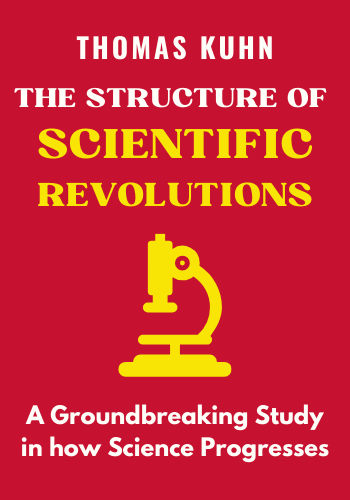
The Structure of Scientific Revolutions
Thomas S. Kuhn
9 Key ideas
27 MINS
4.6 (2.2k)
Science History Philosophy
Ever wondered how the world of science has evolved over centuries?
Are you fascinated by the paradigm shifts that have led to revolutionary breakthroughs?
Dive into this compelling exploration of the progression of scientific understanding, from Newton's laws of motion to the Einstein's theory of relativity. Discover how historical context and individual perspectives have woven a rich, evolving tapestry of scientific knowledge and innovation.
Ever wondered how the world of science has evolved over centuries?
Are you fascinated by the paradigm shifts that have led to revolutionary breakthroughs?
Dive into this compelling exploration of the progression of scientific understanding, from Newton's laws of motion to the Einstein's theory of relativity. Discover how historical context and individual perspectives have woven a rich, evolving tapestry of scientific knowledge and innovation.


Ever wondered how the world of science has evolved over centuries?
Are you fascinated by the paradigm shifts that have led to revolutionary breakthroughs?
Dive into this compelling exploration of the progression of scientific understanding, from Newton's laws of motion to the Einstein's theory of relativity. Discover how historical context and individual perspectives have woven a rich, evolving tapestry of scientific knowledge and innovation.
Key Ideas
Read | Listen - Full summary
About Author
Thomas S. Kuhn was an influential American physicist, historian, and philosopher of science. He is best known for his book "The Structure of Scientific Revolutions," published in 1962, which introduced the concept of "paradigm shifts" in scientific progress. Kuhn argued that scientific advancements do not occur through a linear accumulation of knowledge but rather through a series of revolutionary changes in which an existing framework is replaced by a new one. This work has had a profound impact on how we understand the development and progression of science.
Learn Key Ideas from 9000+
non-fiction books in 15min.



